The State News highlighted seven community changemakers who have made unsung contributions to and left lasting impacts in the East Lansing community.
Lupe Izzo
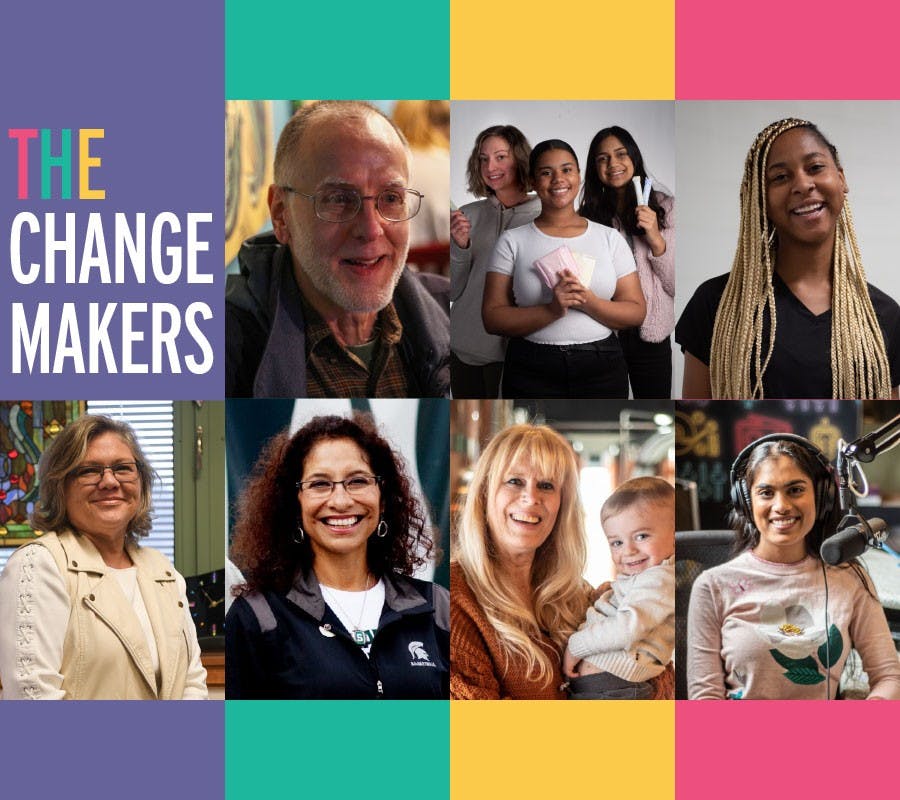
The State News highlighted seven community changemakers who have made unsung contributions to and left lasting impacts in the East Lansing community.
Lupe Izzo
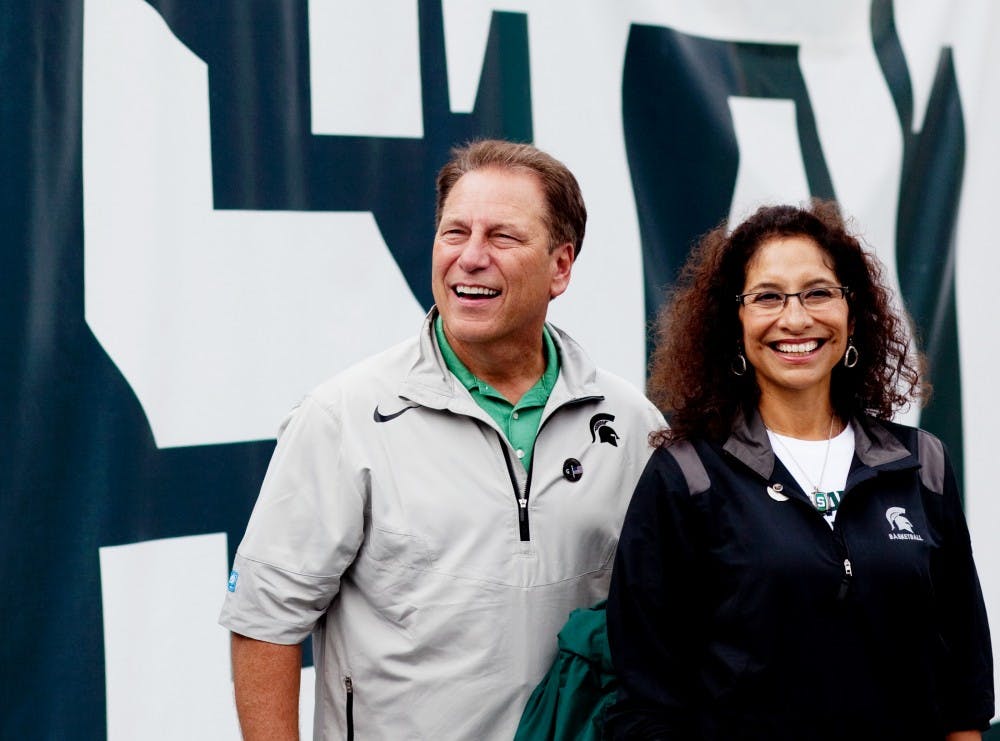
Lupe Izzo has chaired the food drive at the Breslin Center at Michigan State for 25 years, with the 25th annual drive taking place on Jan. 17 ahead of MSU’s 67-55 home win over Wisconsin.
“When I married (coach) Tom (Izzo) ... I started working with the food drive and worked on doing a food drive at Breslin,” Izzo said.
She said people didn’t take it seriously at first.
“They didn’t think that it was a problem or didn’t really quite understand the issue of hunger,” Izzo said. “Mostly in the last five, six years, people have really come around knowing that it is an issue. It is a problem that faces not only our community, but America.”
As the food drive has grown over the span of a quarter-century, Izzo recalls her father’s relationship with former Lansing Mayor David Hollister — who held the position from 1993-2003 — as a catalyst for the drive’s genesis.
“Because my father was a community person, I was brought up in a house that always helped people, and it was all about community,” Izzo said. “Before I knew about celebrities and sports people, I knew about these people. And to me, these people were my heroes. … They saw needs, and they met them. … I knew the founders, and I wanted to continue to do the good work that they had started.”
While describing the food drive’s objective, Izzo noted its aim to supplement the Greater Lansing Food Bank, where she holds a board position. Since the Lansing bank maintains more than 140 pantries in the area, the effort continues to grow.
“This year, they’re going to be feeding over a 100,000 people in our community,” Izzo said. “Maybe people had to choose between paying a bill or getting medication. Now, because of compassionate people in our community, there’s a place for them to go for food and still be able to afford their medication or pay their heat bill.”
When asked about the reasons behind her 25-year effort, Izzo said she was grateful to have been able to pursue it in the first place
“I just take it as, I’m able to do this,” Izzo said. “I can do this. I get to do this. I can choose not to, but I do get a chance to.”
Trish O'Brien Riley
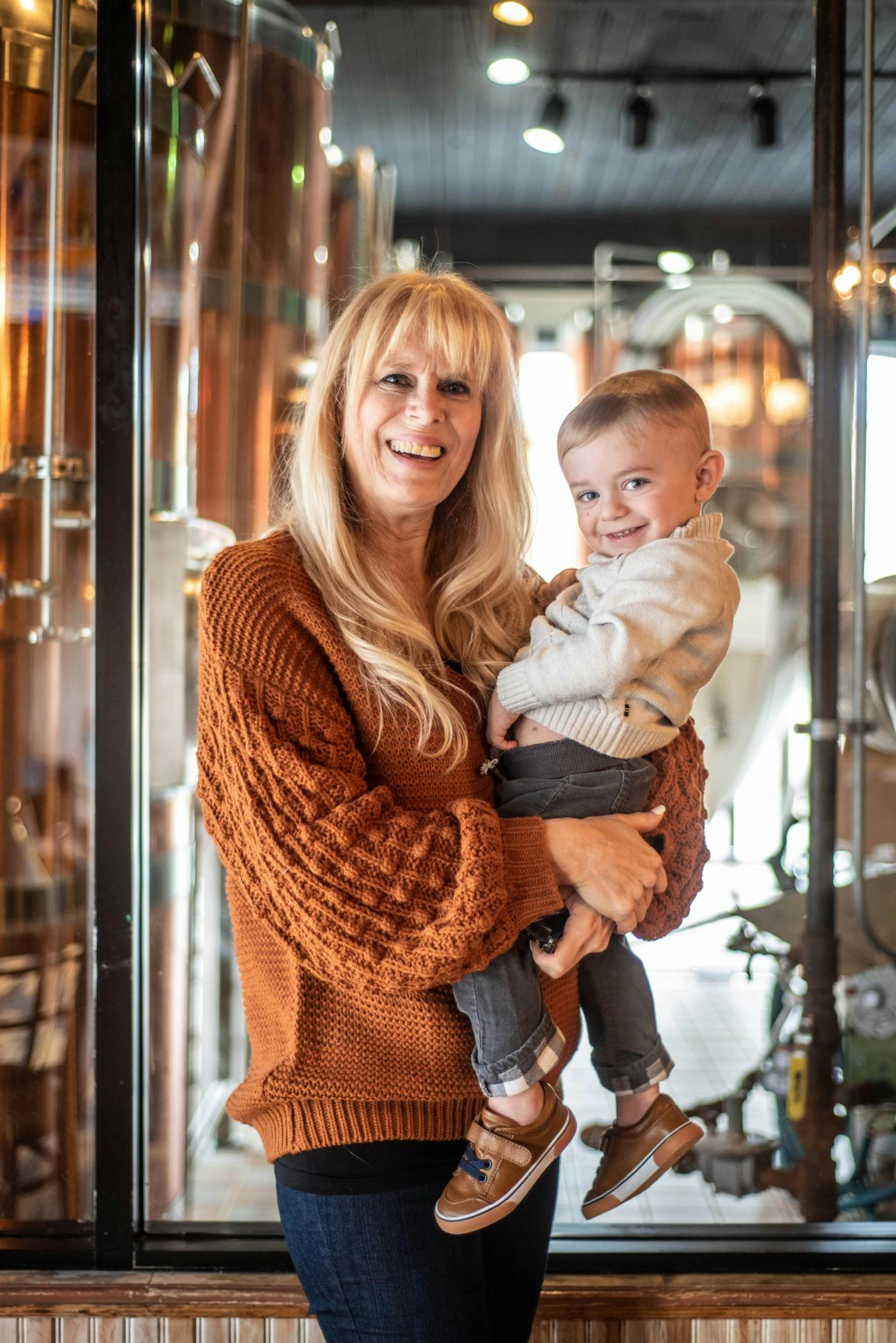
For Harper’s Restaurant and Brewpub owner Trish O’Brien Riley, giving back to the community and the environment has always been her mission.
When the establishment opened in 1997, Riley said she made it a point to recycle.
“When we took over and bought Dooley’s and started Harper’s, I said, ‘We have to start from the very beginning and just do it,’” Riley said.
Recycling is something she grew up doing. She said she likes doing eco-friendly initiatives in her restaurant because of the significant impact it has on the environment.
“My mom used to make me recycle,” said Riley. “Recycling is just natural for me.”
Support student media! Please consider donating to The State News and help fund the future of journalism.
According to the Harper’s website, the restaurant has achieved its recycling goal of 116,000 glass and plastic bottles as well as 6,000 cardboard boxes in a given year.
Riley said she is always looking for ways to be more environmentally conscious.
“I have tried to perfect it even more, so I’ll have more receptacles ... and more avenues,” Riley said. “There are certain things Granger will not pick up from the restaurant, so I am starting another section in our establishment that we will take by truck ourselves once a week.”
She said not everyone in East Lansing agrees with her eco-friendly ways.
“I used to be the chair of our downtown development in East Lansing for eight years,” Riley said. “I really tried to get everybody to show interest in it, and maybe do a generic area where we can recycle. I even offered my own parking lot at Harper’s to be the recycling center where other places could bring their stuff, but there just wasn’t the interest.”
On top of Riley’s eco-friendly initiatives, she said she has also given back to the community she calls home. She started “giveback nights,” where all the proceeds from the door cover are donated. The restaurant has donated its proceeds to national organizations for many years. Recently, the Rileys have focused their attention on giving locally.
“In 3 1/2 to four years, we have given back over $400,000 for local causes, and that is our customers’ causes,” Riley said. “I just got done writing $20,000 worth of giveback checks just now today.”
Riley said she’s hoping to donate even more to the community soon.
“I am trying desperately to get $500,000 as soon as I can because I really love being able to give back,” she said. “And Harper’s is really the only avenue I have to be able give that kind of money.”
Chelsie Boodoo

Chelsie Boodoo has been inspired by science since she was a child. Her father owned a computer shop where she learned about technology, which intersected with her mother's involvement in community service. Now, Boodoo is a biomedical engineering Ph.D. student at Michigan State who founded The Sci-Files — a talk show on Impact 89 FM, MSU’s student radio — and MSU SciComm.
Boodoo said she came up with the idea for MSU SciComm after attending a conference in 2018 about science communication. Because MSU didn't have a group focused on this subject, she said she decided to start one herself.
Boodoo is also interested in art, and even paid her way through her senior year of undergrad as a henna artist. MSU SciComm became a way for Boodoo to combine her passion for science with her passion for art, in addition to being a way for her to bring this idea to her community.
MSU SciComm gives scientists the opportunity to present their ideas in an artistic way, even if they don’t have artistic skills. The group has organized an art exhibition, a live science art show and science art activities for kids at the Abrams Planetarium on MSU’s campus.
Boodoo is also a co-host of The Sci-Files, which she hosts with her fiancé, Daniel Puentes. On this talk show, they interview students involved in science and cover topics such as education, biology and physics.
The Sci-Files was awarded first place in the 2020 college radio talk show category hosted by the Michigan Association of Broadcasters.
Currently, Boodoo is preparing for an event at The Grid Arcade & Bar in Lansing, where members of the public will have an opportunity to meet some of those interviewed on The Sci-Files. The event will feature a beer brewed in honor of the black rhino born at Potter Park Zoo on Dec. 24.
"We brewed another beer but it's a stout, and it's a black beer basically because we had an interview about Doppsee — she's the rhino, the black rhino at Potter Park Zoo — and she recently gave birth to a baby calf, a boy," Boodoo said. "And we had an interview with ... doctors and zookeepers and students of MSU Vet Med, and we spoke about Doppsee's pregnancy because it was so rare."
The proceeds of this event will go to the animal health program at Potter Park Zoo.
Boodoo said she was inspired to connect science with the community after attending “star parties” at Florida International University.
"People from all over the community could come and look at telescopes," Boodoo said.
Boodoo said her parents met Puentes at one of these events, where he showed them Jupiter and the moon.
"I loved those events because I saw science with the community, and that was not something I saw often, even though I did outreach," Boodoo said. "Whenever you see someone who's older than you really have an appreciation for science, especially when they're not a scientist, that still touches me, in a way."
Kelly Arndt
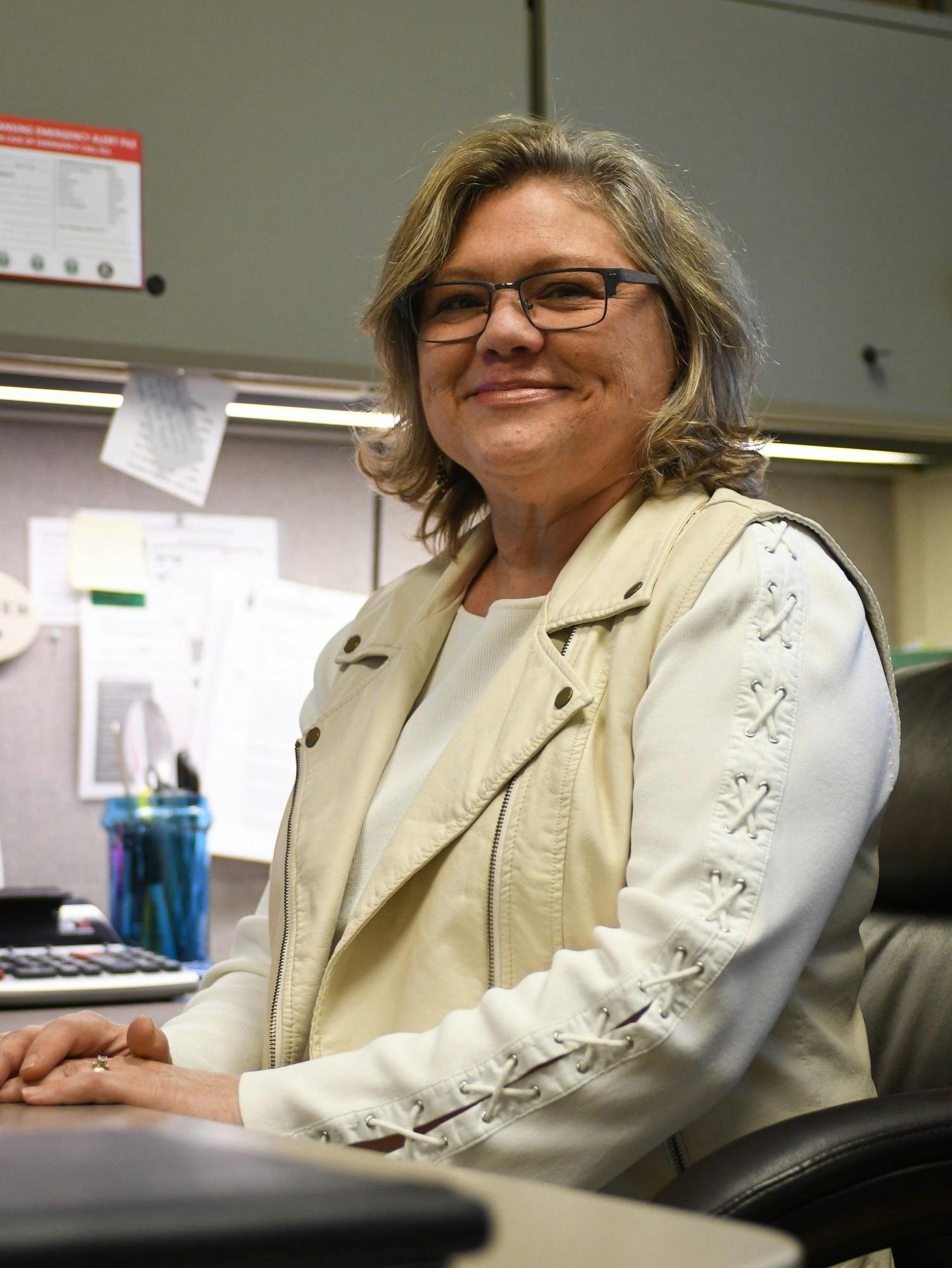
Home to Michigan State, East Lansing is mainly known as a college town. But beyond student life, the city also hosts a welcoming environment for its senior and retired residents.
“We’ve added 30 years to life expectancy. What do you do with those 30 years?” Kelly Arndt said. “Seniors themselves are challenged by it, let alone society.”
Arndt, who has been director of the East Lansing Prime Time senior program for more than 28 years, said it’s her philosophy that life should be shared. Arndt said she knows the seniors in this community appreciate life-long learning and what it brings.
From the beginning of her career, Arndt said she has always had an affinity for this age group and wanted to help. Her experience in Battle Creek, Michigan made her want to work for the senior community.
“I would go to work and there’d be seniors sleeping on the benches,” Arndt said. “It was a community that really needed our support in very fundamental ways. Shelter, food — basic ways.”
The program received the Crystal Award from the City of East Lansing in 2004 for the number of volunteers they recruited and trained to help within local schools, the university and the city.
Arndt said in 2007, East Lansing Prime Time achieved national accreditation through the National Council on Aging in Washington D.C. Arndt said she was proud of achieving a status that less than one percent of the nation’s senior centers achieve.
“We’ve heard from several seniors that we’ve saved their lives after spouses passed away and they have no one,” Arndt said. “We’ve had children of aging parents say the same thing … we see the impact that we’re making in their lives.”
Arndt said the program has more than 1,000 members coming from across Mid-Michigan.
“It’s a great gathering place,” said Marcia Van Ness, a Prime Time member. “There’s a good community feel to it. ... (Arndt) is a leader in the community, not just the senior community … she is a credit to the city and the town.”
For Arndt, being in this community is a win-win. She said she feels lucky that the senior community is located in East Lansing, where their needs are being addressed.
“We got students coming over every Friday to teach technology to older adults,” Arndt said. “You should see the exchange, it’s lovely.”
Retired attorney Robert Nelson said there are a variety of ways that East Lansing has helped senior citizens survive.
“We’d like to encourage the youth to be active and to provide their help to (the) seniors so we can interact with them,” Nelson said. “We’re more than willing to do that and to be a part of their experience.”
Will Kopachik
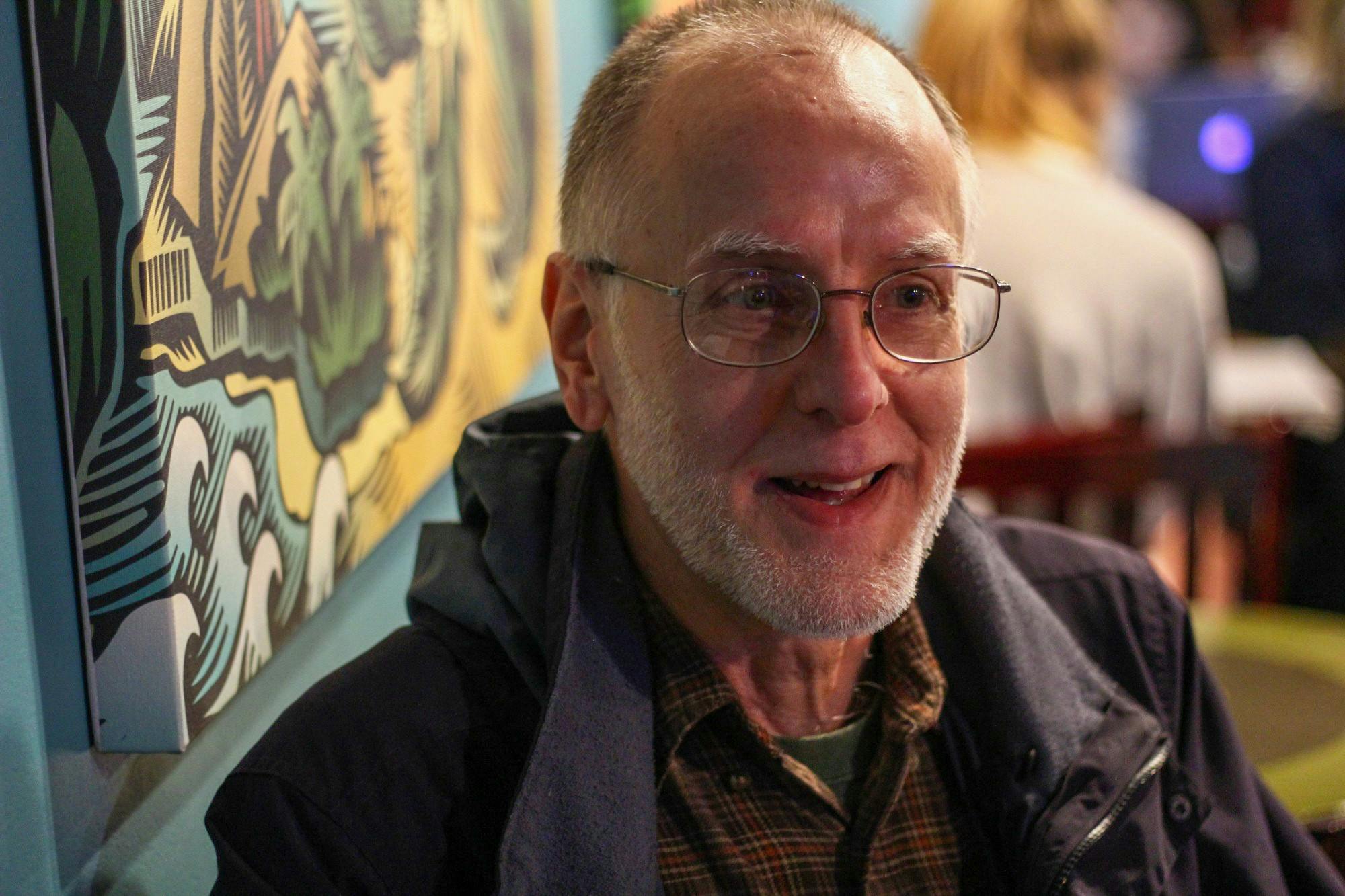
Nominated for his efforts in fostering a hands-on science experience for East Lansing High School students, Will Kopachik — a retired Michigan State faculty member and tenured associate professor in MSU’s Department of Integrative Biology — accepted a Crystal Award from the City of East Lansing in 2019.
According to the city’s website, community members are encouraged to nominate “unsung heroes of East Lansing” to be granted this award. Nominations are reviewed by a community selection committee and four participants are selected annually. As stated in the selection criteria, those recipients demonstrate “a passion for and commitment to creating a healthy and vibrant community and serve as an inspiration to others.”
Kopachik was one of three individuals recognized in 2019, due to his dedication to coaching the Science Olympiad team at East Lansing High School, or ELHS, which he founded in 2015.
“It was a big surprise to me,” Kopachik said. “In fact, the people that nominated me kept me in the dark … By some ruse, they took me there (and said) that the award was going to be given to somebody else.”
At the time, Kopachik said his daughter was a student at the high school, interested in learning more about science. After meeting with her biology teacher, John Heinrich, and inquiring as to whether the school hosted a science fair, Heinrich suggested he start his own Science Olympiad team.
For three years prior, Kopachik said he had planned and organized a “Science-palooza” event at MacDonald Middle School, giving students an opportunity to present personal science experiments to an audience of judges.
In previous years, ELHS has placed a strong emphasis on its sports teams, Kopachik said. Because of this fact, one goal of Science Olympiad is to provide opportunities to those who may not be “sports-inclined.”
“In all these different events, they get a chance to learn things which are really current and you can see it build up their interests,” Kopachik said. “It’s personally very fulfilling to see something like that.”
Kopachik said he’s noticed a strong sense of community throughout his years of living in East Lansing
“You can go to (any magazine) and they’ll have a list of the top 10, top 25 best places to live in the United States,” Kopachik said. “All of their metrics are based on things like the median family income, how much the houses cost — things which really aren’t as valuable as living in a place which has community where people care about each other.”
Mission Menstruation
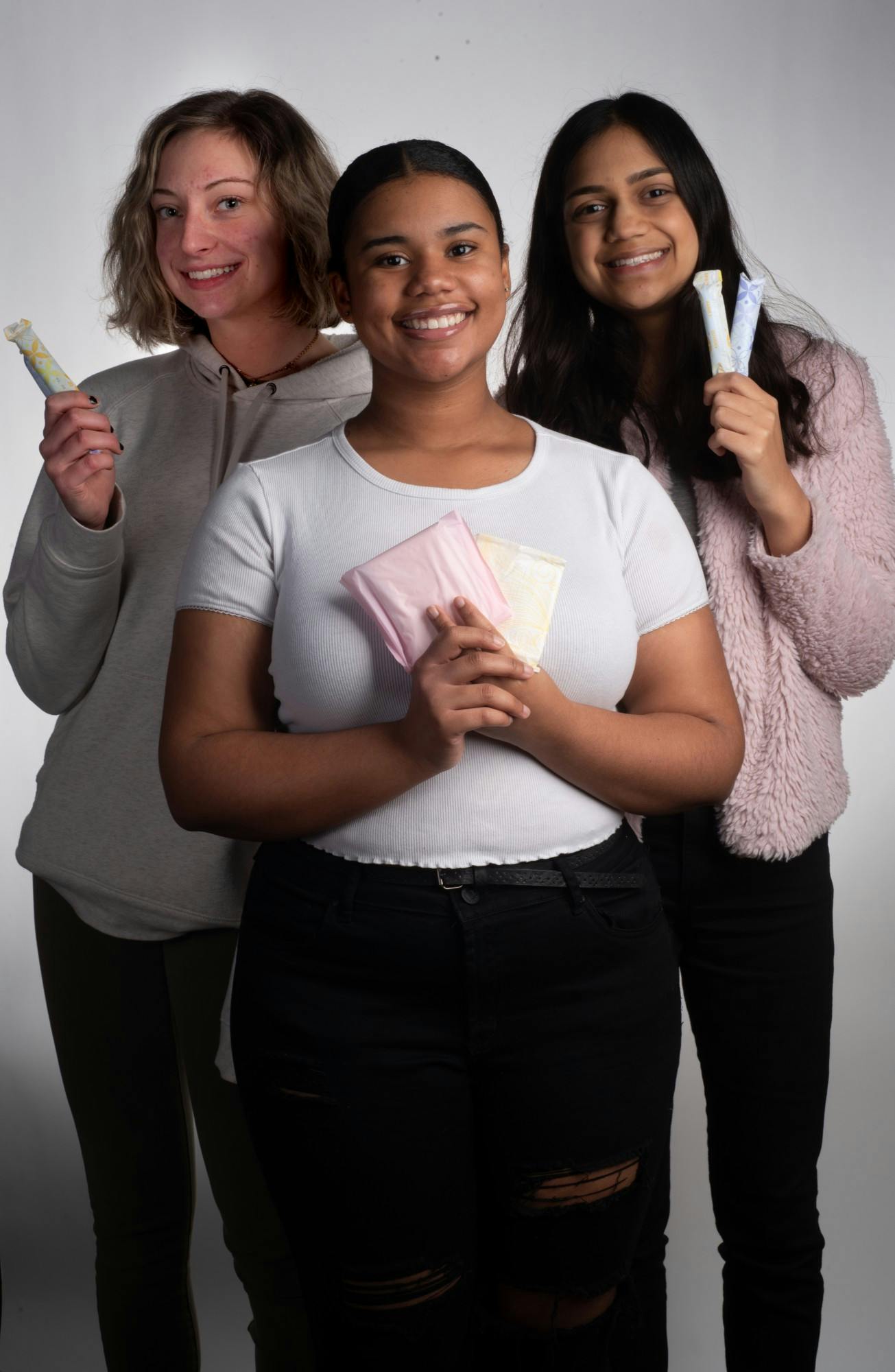
Emily Estrada, left, and Ta’Sheena Williams, center, and Nama Naseem, left, pose for a photo on Feb. 5, 2019.
The average person who menstruates spends roughly $1,773.33 on menstrual products alone, if they use tampons, during the 456 periods they'll have in their lifetime, according to an estimate from Pandia Health. This doesn’t include the cost of other products directly related to period care such as painkillers — amounting to $1,229.83 in their lifetime — or birth control, amounting to $11,400.
“I don’t really have a choice, I am a woman. That means I have a period," history senior Audrey Bakos said. “I don’t have an option — I have to buy tampons, I have to buy pads or it’s going to be a mess and I’ll ruin my clothes.”
With periods typically lasting three to five days, people who menstruate will spend roughly 6.25 years, or 2,280 days, on their menstrual cycle. Currently, all menstrual products are taxed with Michigan’s 6% sales tax, while prescription drugs are tax exempt.
“The tampon tax implies that menstrual hygiene products aren’t a necessity,” said Lauren Sosinski, vice president of Michigan State's Women's Council. “By adding this cost to something that is a necessity, it basically just makes it that much harder for students to survive through college. So, if they’re not living on campus or don’t have a meal plan ... they might have to choose between feeding themselves or cutting back on other necessary hygiene items ... in order to take care of their period.”
The MSU Women’s Advisory Committee for Support Staff, or WACSS, has implemented free emergency menstrual product stations in various locations around campus through a program called Mission Menstruation. Sosinski said these stations help students who might begin their period unexpectedly spend less time away from their classes, work or other obligations.
Most women's restrooms on campus have menstrual product dispensers that cost 25 cents. However, those dispensers don't work for students who don’t carry around change, president of PERIOD. @MSU Nama Naseem said (Naseem is a member of The State News’ Board of Directors).
“That cost is a burden for a lot of people,” Naseem said. “We accept that we don’t have to pay for toilet paper, but I have to pay for menstrual products if I just so happen to not have a quarter on me, which is pretty normal ... You aren’t expected to just have change ... for a product.”
Also, the 25 cent menstrual product dispensers are only located in women’s restrooms, which makes them inaccessible to other students who menstruate, Bakos said.
“Aside from stocking menstrual hygiene products in the women’s bathroom, they can stock them in the gender-neutral bathrooms as well as the male bathrooms,” Sosinski said. “Because not all people who menstruate are women or identify as a woman.”
Naseem said she believes there is a need for more affordable and easily accessible menstrual products, which is one of the goals of Mission Menstruation.
“When we talk about Mission Menstruation, we just say that we wanna make sure that students aren’t missing class due to their period,” Naseem said. “The most difficult part is trying to promote it, because not all bathrooms have the flyer taped everywhere. ... But if people are aware of it or they happen to come across a bathroom that does have a dispenser or a bathroom that does have a sticker that says where to find a free basket, then they’ll end up keeping it.”
If students are struggling to pay for menstrual products, Naseem said she advises them to take advantage of Mission Menstruation and break the silence around periods.
“Never feel uncomfortable asking someone for products,” Naseem said. “Periods are private and we’re told not to talk about them, but it’s much safer to ask someone for a product than using something that isn’t hygienic like a sock or a paper bag.”
Black Girl Fitness
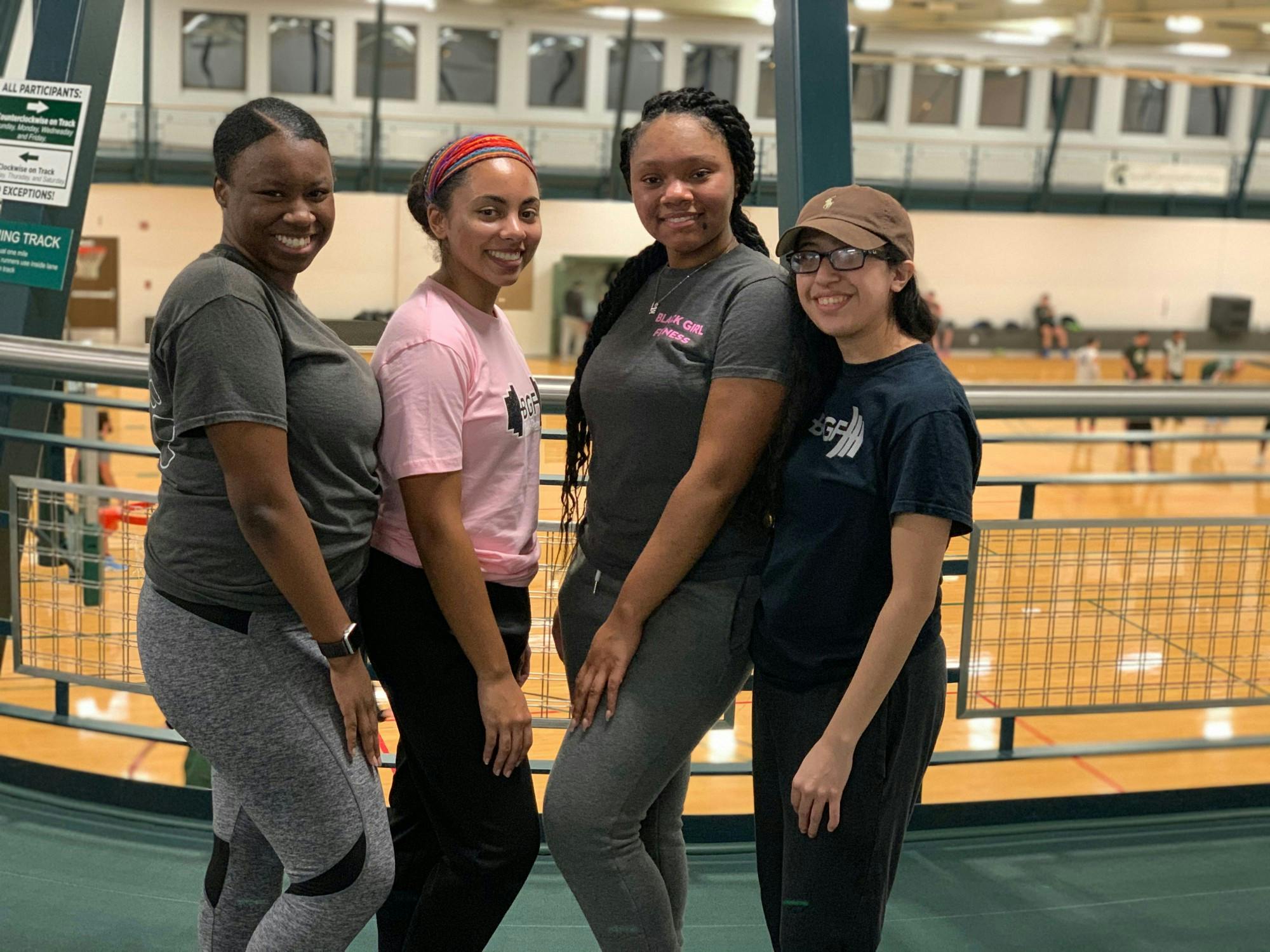
E-board members of Black Girl Fitness on Jan. 30.
A healthy and fit body is Black Girl Fitness, or BGF’s main goal for minority women at Michigan State. Their fitness journey began in spring of 2017, said textile design junior Jasmine Parker, president of BGF.
“We’re a fitness org on campus catering to minority women, specifically black women,” Parker said. “We just try to teach them about their health and fitness to maintain a healthy lifestyle.”
The only requirement to join is to be a minority woman, but they still accept any woman who wants to join, Parker said.
Parker began as a secretary for the organization and worked her way up to become the president. In addition to studying apparel textile design, she is pursuing a minor to become a fitness coach.
Parker said she wants to promote more of what their membership offers to the students on campus.
“We have a personal trainer, you get nutritional tips, you get to work out with equipment in the dance studio,” she said.
Criminal justice freshman Aaniya Carroll said she is proud to be a member of BGF.
“I really feel at home here,” Carroll said. “When you're in the process of starting your weight-loss journey, when you're around people you're not so comfortable around, it can be an uncomfortable situation. It can be hard for you to focus on your weight-loss, but here it feels like home.”
Carroll said she likes the consistent workout schedule and the motivation she receives from the president and co-president to “keep pushing when it gets hard.”
Vice president and human development junior Jala Williams said BGF is beneficial for her. She has lost weight, learned how to eat healthy, gained a support system and said their bond has improved a lot.
“We have tried to build a sisterhood within the org so everyone knows each other,” Williams said. “We try to make everyone feel as comfortable as possible.”
Their workouts are three days a week – Mondays, Wednesdays and Thursdays. Mondays are full body and cardio, Wednesdays are upper body and Thursdays are lower body, Parker said.
There are nutritional events that are held for members once a semester and consist of one entrée, a drink and dessert that they provide for free, according to Parker said via email.
“We also have a PowerPoint presentation to explain to our members different nutritional tips and advice for a healthy lifestyle,” Parker said via email.
Parker also said a healthy breakfast can consist of oatmeal, bananas, vegan sausages and can all be found in MSU’s dining halls.
Lunch and dinner can be anything with veggies, turkey meat, chicken, salmon, wheat bread, brown rice, anything high in protein and healthy carbs, said Parker.
Eating healthy isn’t easy, but BGF helps with encouragement, history, philosophy and sociology of science sophomore Nyah Lemons said.
“We get indulged with all these foods, and we get out of shape. ... But this community helps you stay in shape in a way to make us feel better about ourselves,” Lemons said.
While keeping minority women healthy and fit is their main goal, they are also involved in volunteer work.
“We did a breast cancer awareness walk,” Williams said. “It was a big turnout, it was something we did as a bonding event, as well as to raise awareness for breast cancer.”
Parker said after selling socks, giving out wristbands and face tattoos, all proceeds and donations went to a breast cancer charity.
They visited Uncle John's Cider Mill for community service as well. They drove to the apple orchard and volunteered four hours of their time for The Great Pumpkin Run in September. They set up tables for runners and helped pass out apple cider and medals, Parker said.
In the coming weeks, they are looking forward to volunteering at a student food bank in Olin Health Center.
BGF also collaborates with other organizations on campus including Men of Elite. Secretary for Men of Elite and mechanical engineering sophomore Ryan Thomas said they wanted to support the girls and show them “black men on this campus do support them and anything they want to do.”
Men of Elite collaborated with BGF twice last semester and wants to continue to do so in the future, according to Thomas. He also wants to encourage black women to love themselves.
“Have confidence with you, inside. No matter shape or size, just know that if you stick to it, you will get to those goals where you want to be,” he said. “Don’t … let outside people let you feel like you’re not the right size.”
Carroll agrees and said women should embrace their bodies.
“We are trying to be like Instagram goals. ... We’re put up against these Instagram models that are photoshopping their pictures, they’re getting their bodies done,” Carroll said. “We’re just constantly trying to level with them and not even realizing we are perfect the way we are.”
For more information on Black Girl Fitness, visit their Instagram @bgfmsu.